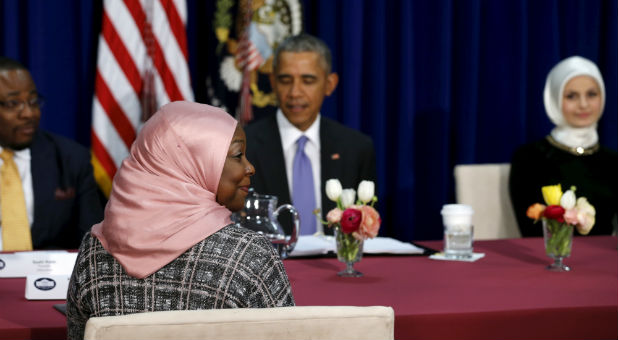The thousand-year Byzantine Empire was one of the most powerful and vast empires the world has ever known, and it was Christian. During its lengthy reign, it produced a mass trove of Christian art, architecture, legal jurisprudence, theology and culture. It built, perhaps, the most magnificent church building ever built, the Hagia Sophia in Constantinople, which is said to have changed the history of architecture.
Yet, the mighty Byzantine Empire fell to Islam in the 15th century and serves as a reminder to us that we must not trust in our advanced technology, stock market wealth, or military might, but our trust must be in the Lord. As David said in Psalm 20:7, “Some trust in chariots and some in horses, but we will remember the name of the Lord our God.”
Why did the Byzantine Empire fall to Turkish Ottoman invaders in 1453? I will address three reasons in this article—three trends that weakened the church and Empire and made both vulnerable to the Islamic invaders. They are (1) The church’s preoccupation with political power; (2) the loss of personal faith to outward ritual and liturgical formalism; and (3) theological rigidity and strife.
Reason #1
The Church’s Preoccupation with Political Power
The mighty Byzantine Empire began around A.D. 330 when Constantine moved the capital of the Roman Empire from Rome to the small city of Byzantine near the eastern edge of the Empire. There may have been logistical reasons for making this major move, but ego was obviously involved for he renamed the city Constantinople after his own name and made it the capital of the Empire. Today, the city is known as Istanbul.
Constantine, though he had not been baptized, convened the famous Council of Nicaea in 325 in the nearby city of Nicaea. Although the stated reason was to address the Arian heresy that denied the full deity of Christ, many historians believe that Constantine had political reasons for calling this council.
With the Empire beginning to unravel, it is likely that Constantine saw Christianity as the cord by which he could pull the Empire together, for the one common thread running through all the varied people groups of the Empire was Christianity. If he could strengthen that cord, it would strengthen and bind together the Empire.
Constantine thus began favoring the Christians, building them elaborate buildings and underwriting the salaries of their bishops whom he also exalted into positions parallel to the provincial governors of the Empire. Hans Kung, the most widely read Catholic theologian in the world today, says:
Constantine used this first council not least to adapt the church organization to the state organization. The church provinces were to correspond to the imperial provinces, each with a metropolitan and provincial synod. In other words, the empire now had its imperial church!
Christianity thus became politicized and this continued with increasing intensity with Constantine’s successors. This led to much political wrangling for church offices and power, often involving banishments and even death. At the Council of Ephesus in 449 physical violence broke out and the presiding bishop, Flavian, died of the wounds received at this council (Eddie Hyatt, Pursuing Power, 52).
It was these political pursuits of power that caused Gregory of Nazianzus (325-389), Bishop of Constantinople, to come to disdain church councils. He wrote:
For my part, if I am to write the truth, my inclination is to avoid all assemblies of bishops, because I have never seen any council come to a good end, nor turn out to be a solution of evils. On the contrary, it usually increases them. You always find there love of contention and love of power which beggar description (Eddie Hyatt, Pursuing Power, 52).
In such a politicized setting, it is no wonder that the power of the simple message of Jesus was overlooked. The church and its leaders relied on the political power of the state to advance its cause rather than the power of the message itself, which Paul said, is the power of God to salvation for everyone who believes (Romans 1:16).
This preoccupation with political power and the divisions it produced weakened the church and the Empire and made both vulnerable to the Muslim invaders. In this election year, let us remember that a politician will not save us. There must be a turning to God Himself. Let us remember the words of Isaiah 33:22, “For the Lord is our judge, the Lord is our lawgiver, the Lord is our king; he will save us.”
Reason #2
Personal Faith Replaced with Liturgical Formalism
With the politicization of the church there came a corresponding loss of the personal aspect of the Christian faith. Instead of a heart relationship with God through faith in Christ, Christianity became institutionalized and formalized. Gifts of the Spirit that flowed freely in the New Testament church were gradually replaced with outward form and ritual.
Constantine initiated the construction of church buildings to accommodate the religious gatherings of Christians, who had previously gathered primarily in homes. The architecture of these new buildings, with their elevated throne-like seating at the front for the bishop and rows of seating for the congregation, made significant congregational involvement impractical. In addition, the liturgy and worship style, once plain and personal, were now adorned with the pomp and practice of the Imperial court.
Bishops, inspired in part by both Old Testament and pagan precedents, began wearing distinctive clothing to indicate their superior rank. Kung says:
Bishops were accorded secular titles, insignia and privileges which up to then had been reserved for the emperor or high officials: candles, incense, a throne, shoes, the maniple, the pallium and so on (Hyatt, Pursuing Power, 49).
See an error in this article?
To contact us or to submit an article






















